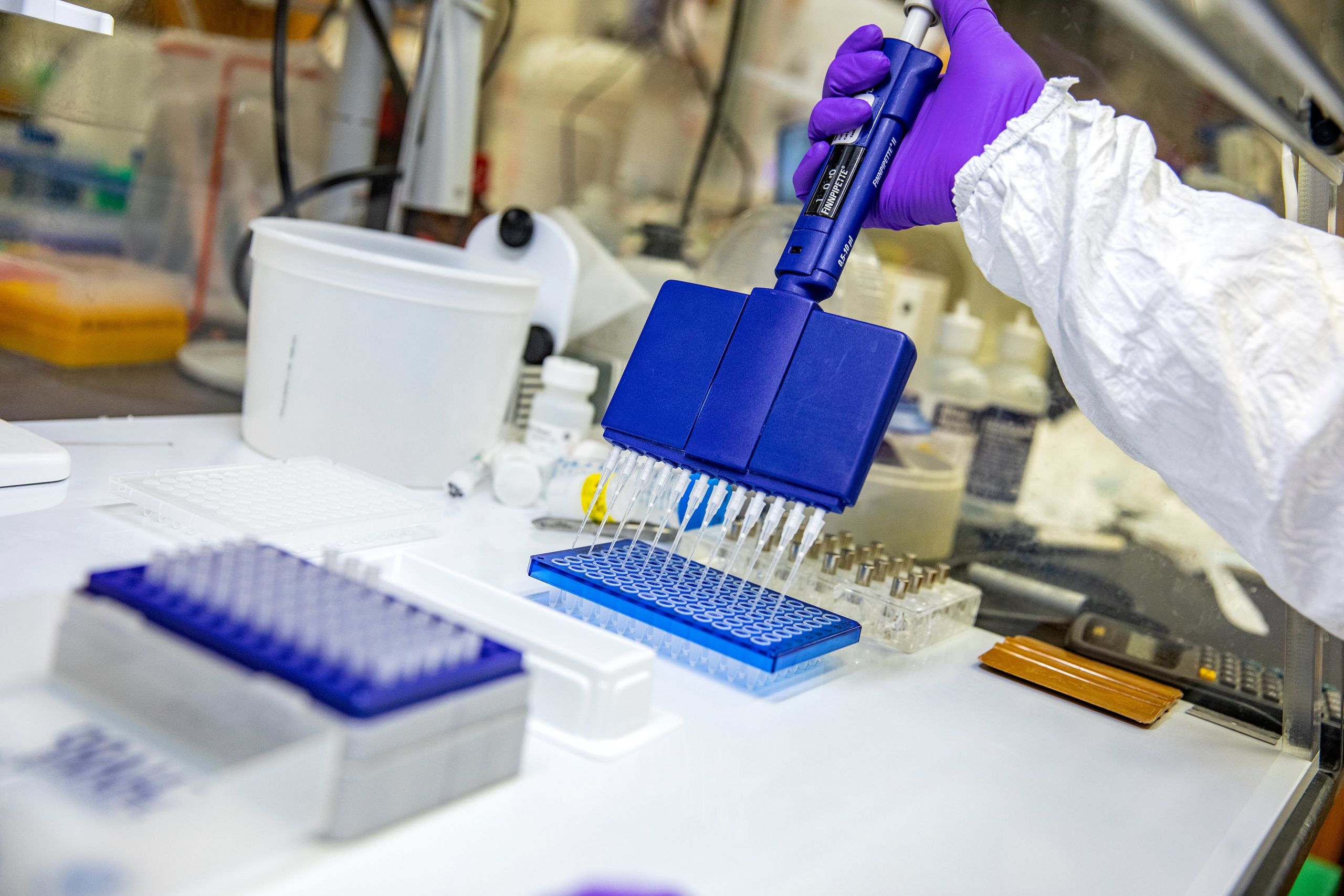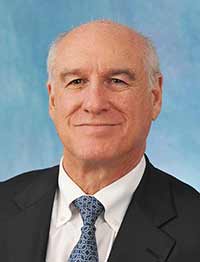Carolina Has the Expertise: Myron Cohen Updates Trustees
Posted on May 21, 2020
“If we do this successfully,” said Myron Cohen, director of UNC’s prestigious Institute for Global Health and Infectious Diseases, “we might have this finished by in the fall.” (UNC photo)
A “rescue drug” that could stop the progression of the COVID-19 virus in people who are infected is expected to be sent to a UNC lab for testing next week. Subject to a vastly accelerated schedule, if it works it could be ready for application in the fall.

Cohen
Dr. Myron Cohen, director of UNC’s prestigious Institute for Global Health and Infectious Diseases, reminded the Board of Trustees on Thursday of the University’s recognized expertise in the field and particularly its long history with coronavirus research. In a detailed presentation, Cohen, one of the world’s foremost HIV researchers, also cautioned against the medical pronouncements seen on TV, said to put on those masks and confronted the question of what would constitute a decision to re-close the campus after it welcomes students back this summer.
Cohen, who also is associate vice chancellor for global health and medical affairs, addressed the potential impact of the students’ return to campus, but he spoke mostly from a national perspective. Since February, he has served on the active oversight committee of COVID-19 activities in the U.S.
“What will really relieve the stress in our country,” he said, “is what we call a rescue drug. A drug that if you knew was available, you went into a doctor coughing, like you might do for pneumonia, and he said, ‘I’m going to give you a shot that’s going to wipe this out.’ That will relieve all the stress in the United States.
“So we’re working very hard on rescue drugs, drugs that when given early will stop the progression of disease. We have at least five candidates that we’re currently working on, and I’m proud to say some of this work will be done on this campus.”
When trustee Haywood Cochrane ’70 asked how fast effective rescue drugs could be a reality, he got an earful.
“This will sound so hyperbolic it’ll sound insane,” Cohen said. “On May 29, as we understand it, Eli Lilly will fly a drug on a jet here that we’re going to test for the first time in humans here and some other medical centers. If it passes the test, then we’re going to take this drug and deliver it to clients of a nursing home in Chicago — some of those clients will have infection, and some will be uninfected.
“We will determine, we hope in two months, whether this drug can stop the progression of disease. If that drug works for early infection, that will be the first drug for that purpose. There are many other drugs just like that in the pipeline.”
In the outpatient unit at UNC Hospitals, Cohen said, “most people who are infected with COVID do perfectly well. It’s the people with comorbidities, like my age [70], fat, hypertensive. I’m like a poster child.
“If we do this successfully, we might have this finished in the fall. We might have knowledge by the fall — this is accelerated obviously beyond belief, but it’s not impossible.”
The vaccine program, he said, will take longer, “and it is very political. But we are going to vaccinate 30,000 people in the first vaccine, 30,000 in the second vaccine. The Army is going to help with this and the National Guard.” Cohen said trials on five vaccines would start in multiple locations in July. “UNC will be involved in the vaccine program — pretty heavily involved.”
In the immediate, Cohen said, the emphasis will be on behavior change in the healthy.
“Here’s a new virus, and the most important thing for us to do, and which we’ve done pretty successfully so far, is to learn the rules that govern this virus. And there are two sets of rules we’re concerned about: the rules that govern transmission and the rules that govern progression of disease. Because at the end of the day our real responsibility is to prevent the infection and, when the infection occurs, to have agents available that will interrupt the progression of the disease.
“Along those lines, what we have seen in the last three months is really nothing short of remarkable in many ways. The first rule is behavior change. Behavior changes that follow the rules of COVID are wear a mask, wash your hands and distance yourself when not wearing a mask — or even wearing a mask — from other people. If you use these three tools, the probability of a COVID transmission event goes down dramatically.”
But as the University prepares to reopen, trustee Ralph Meekins ’83 asked at what point would incidents of infection on the campus make staying open untenable.
“We measure the risk to our faculty and the risk to our students,” Cohen said. “We can’t hide in a bubble forever. Our faculty are out doing what they have to do. They have some risk of getting infected.
“Dorms are villages — each village represents a place where people can become infected, and we know what we’re going to do when a person becomes symptomatically infected. We have another dorm, the isolation dorm. We know what we’re going to do with roommates that become infected — we have a quarantine dorm.
“Your question is: At what magnitude would we decide this experiment is not appropriate for the well-being of our community? We don’t have an absolute level, but in general what we are concerned about are clusters. We expect to see one-off cases, we expect to have dozens of cases among students, we expect most of them to do well. But if we have clusters of a whole dorm getting infected — and we haven’t got the exact number — that would lead us towards ‘OK, this is so transmissible in this environment this is a bad idea.’ ”
Be careful whose expertise you trust, Cohen said.
“One thing to say about the news: I would be very careful with the news media because the people that are on the news, the physicians you see, most of them are not involved at all in the COVID activities. So their information is so, like, kind of off the wall sometimes. They have the big picture right but not the details right. I’m not opposed to CNN or any of the channels, but you don’t know who’s talking.”
